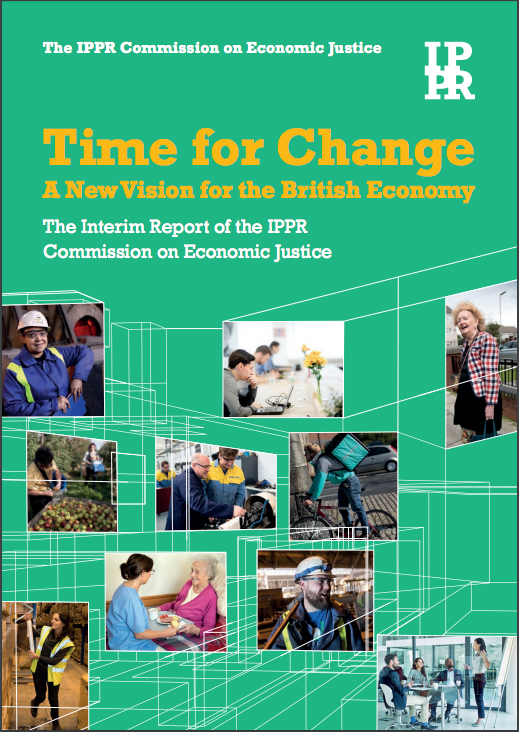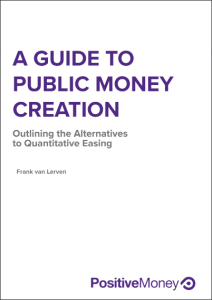Making monetary policy work for economic justice


Welcome news this week came from the IPPR Commission on Economic Justice with the publication of their interim report. Prominent voices in business, politics and academia have lent their weight to the report, which assesses the ‘broken’ economic model – or, as the authors prefer, ‘economic muddle’ – we in the UK are burdened with. The buzz around the publication throws up an opportunity to refine the proposals being mooted for reform, and to direct the debate towards areas that risk being overlooked.
The Commission naturally paints its picture of the UK economy in broad brush strokes. Taking the woeful performance of productivity as its starting point, the ‘British economic muddle’ walks us through a gallery of shortcomings including low investment, weak trade, and a gap in the government’s finances that is set to widen rather than narrow. The results are familiar: inequality, regional imbalances, and environmental degradation. The report describes with alarming clarity how poorly the values that we share at Positive Money – those of a fair, democratic and sustainable system – are served by the current economic framework.
However, two areas stand to gain from further debate. One is the relatively minor place of monetary policy and the money system in the Commission’s work so far. The authors are rightly keen to criticise the dominance of austerity in fiscal policy since 2010. To be sure, the exhaustion of conventional monetary policy – reductions in base interest rates – in achieving economic expansion is clear to see. Positive Money’s own research shows the wider problems with current monetary policy. But what’s needed is not just more public investment, but a better, more progressive form of monetary policy itself. Quantitative Easing (QE) since 2009, by the Bank of England’s own admission, has pushed up the prices of assets held mostly by the wealthy, with predictable effects on inequality. There are alternatives – generating funds for productive investment is one such promising possibility.
Secondly, the IPPR report risks missing an even stronger case for environmental and social issues to be placed at the centre of a reform agenda. It’s worth echoing remarks made by the Equality Trust on the day the report was published: ‘political leaders [should] go even further, and put inequality reduction at the heart of public policy making’. The pursuit of economic growth actually benefits from a more equal society. Perhaps most pressing of all is the need to develop the ‘wider range of policy instruments’ to reduce our impact on the climate – in particular, providing finance for green investment. In a critique of the economy, the environment must feature as a central pillar, not as an afterthought. The IPPR’s work has taken strides towards just such a settlement, but more remains to be done.

That’s why at Positive Money we are pushing for precisely the kind of ‘radical change’ the Commission authors want to see. Our proposals for public money creation place it beyond doubt that QE and low interest rates should not be where the debate ends on monetary policy. In particular, a form of ‘green QE’ – on which we are producing a proposal – would see the Bank of England deploy its vast financial resources to turbo-charge the environmental transition.
As the Commission’s report shows, there is much to be done. As part of that effort, the monetary and financial system is too important to ignore. We look forward to seeing further results of the IPPR’s work and hope to support them in realising our shared vision of economic justice.